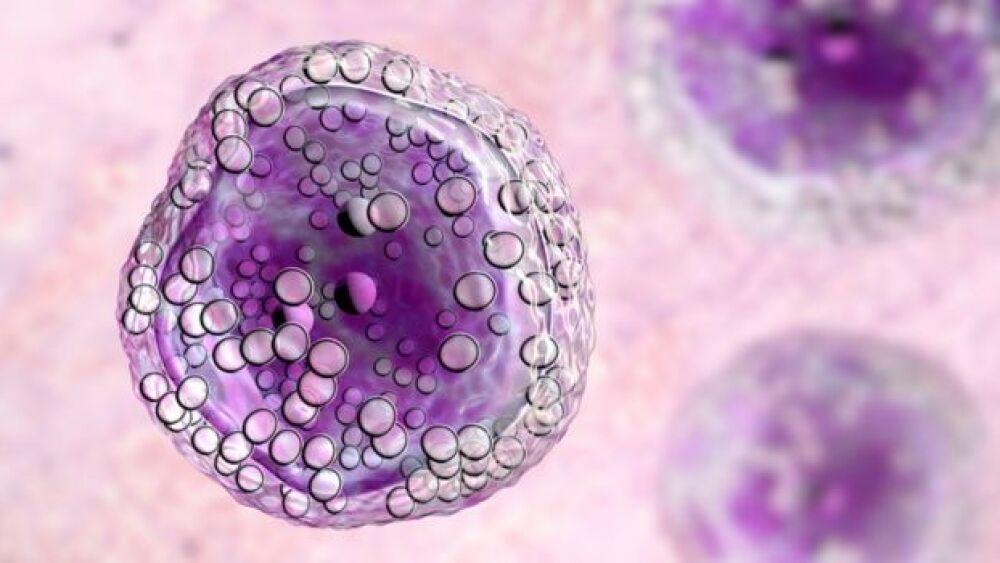Data from a Phase II trial showed that Adcetris, used in a combination approach, is effective in early-stage classical Hodgkin lymphoma patients.
Pictured: Illustration of a lymphoma cell/iStock, Dr_Microbe
Tuesday, Seagen announced results from part C of its three-part Phase II trial in early-stage classical Hodgkin lymphoma, reporting that Adcetris (brentuximab vedotin) used in a combination approach led to complete remission in 93% of 150 patients.
Adcetris was given in combination with Bristol Myers Squibb’s PD-1 inhibitor, Opdivo (nivolumab), and standard chemotherapy agents used for frontline treatment in early-stage classical Hodgkin lymphoma (cHL). The Part C results showed a 98% overall response rate at the end of treatment.
Results from Part B of the study, which focused on advanced-stage disease, were shared at a European Hematology Association 2023 Congress in Frankfurt, Germany last week. The overall and complete response rates were 95% and 89%, respectively. Early-stage cHL patients have very high cure rates of over 90%, according to the NIH. However, long-term treatment related complications often caused patient deaths down the road. Recent focus for drug development has been on minimizing those risks.
Already approved in later stage and high-risk cHL, the goal of ongoing Adcetris studies is to “develop curative treatments that improve survival while also reducing toxicity,” Jeremy Abramson, director of the Jon and Jo Ann Hagler Center for Lymphoma at Massachusetts General Hospital and principal investigator for the Phase II trial, said in a statement.
Seagen won pediatric FDA approval for Adcetris to treat cHL patients aged two and older last November, in combination with standard chemotherapeutic agents. The antibody-drug conjugate works by targeting the CD30 surface protein overexpressed by certain types of cancer cells and releasing its cytotoxic payload once attached.
Last week, BMS presented its data at ASCO for Opdivo in advanced, untreated cHL. Results from its Phase III trial SWOG S1826 showed that after a median follow-up of 12.1 months, Opdivo reduced the risk of disease-related death by 52% as compared with Adcetris.
Additionally, Opdivo patients saw a 94% progression-free survival rate after one year. The Adcetris arm posted an 86% PFS.
The BMS checkpoint inhibitor also appeared to be safer than Seagen’s ADC, with four deaths in the Opdivo arm, three related to adverse events, compared to 11 deaths for Adcetris, seven of which were due to toxicities.
Adcetris will be added to Pfizer’s drug portfolio, once its $43 billion buy of Seagen is completed late this year or early next. The drug is by far Seagen’s top seller, posting $839 million in sales for 2022.
The acquisition will help grow Pfizer’s cancer treatment portfolio as sales from the pharma giant’s biggest sellers—its COVID-19 products—drop off.
Kate Goodwin is a freelance life science writer based in Des Moines, Iowa. She can be reached at kate.goodwin@biospace.com and on LinkedIn.






